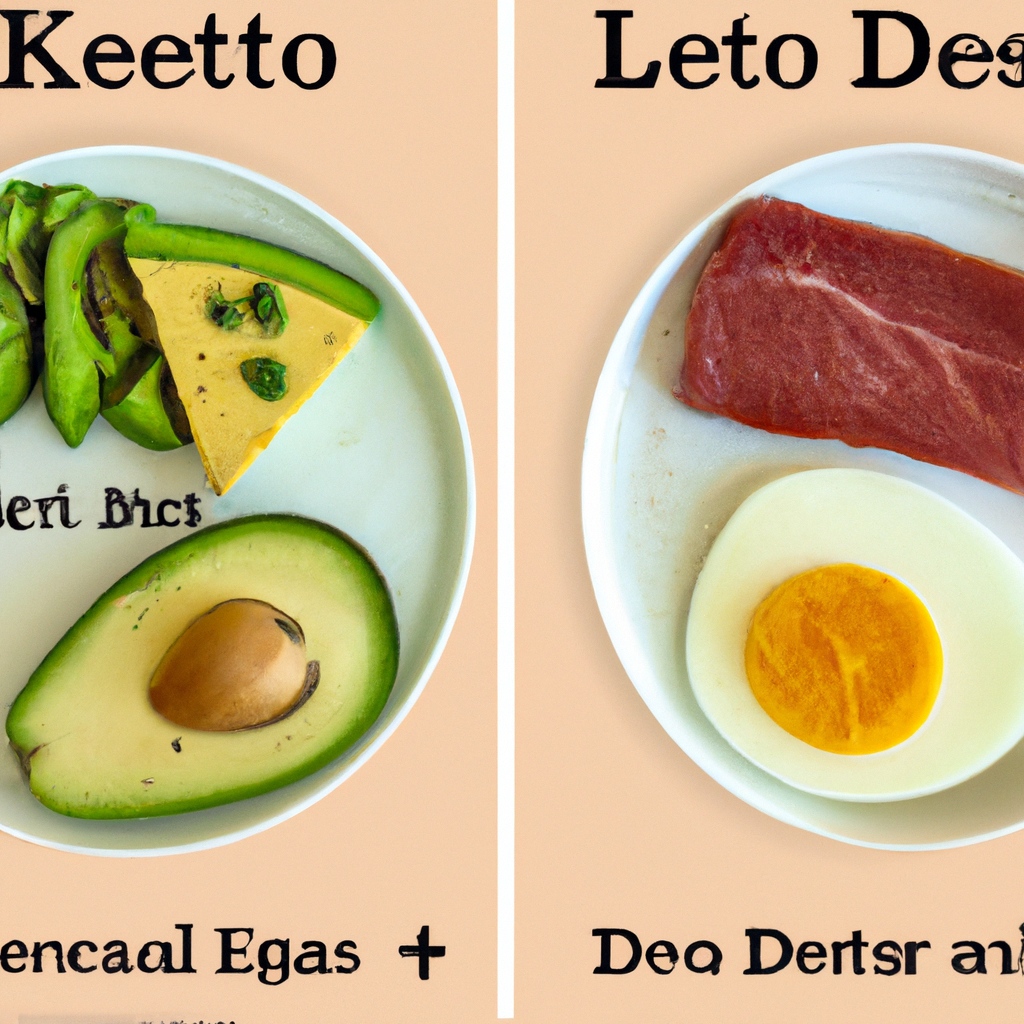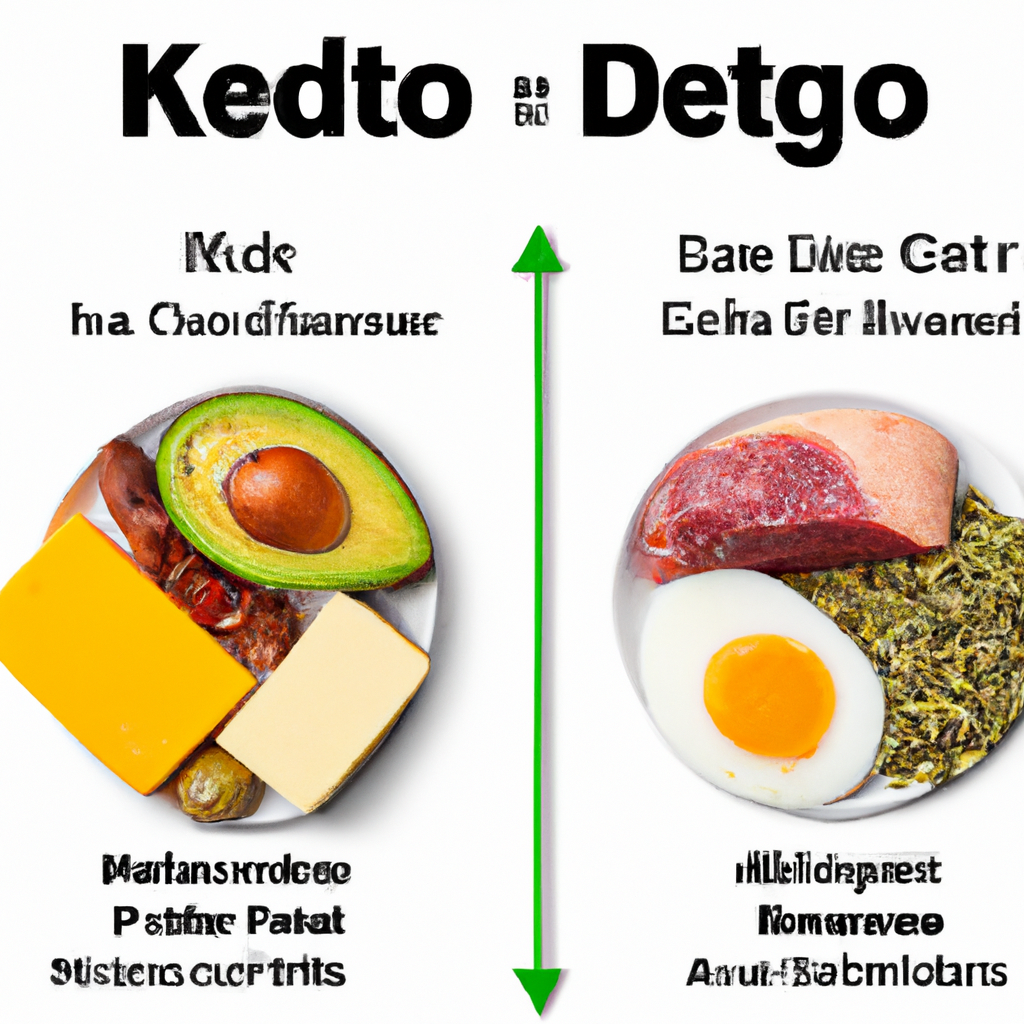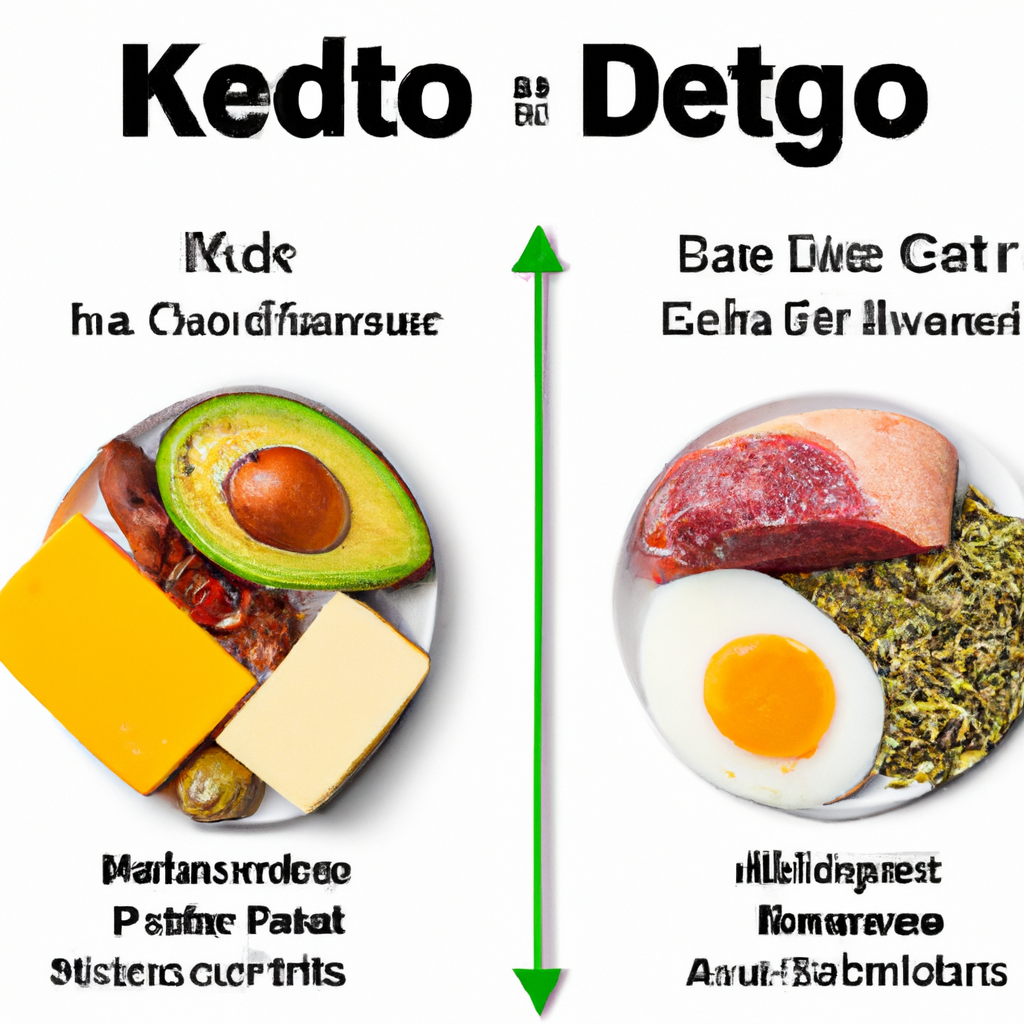Navigating the world of diet plans can often be a labyrinth, especially when it comes to the side effects. keto and high protein diets seem to be all the rage these days, but their potential health impacts often leave you perplexed. If you’re seeking to understand the differences between side effects of Keto and high protein diets, look no further. This detailed article gives a head to head comparison of both diets, helping you make a more informed dietary choice. How about equipping yourself with essential knowledge about those two popular diets’ potential pitfalls? Let’s turn confusion into clarity, shall we?
Understanding Keto and High Protein Diets
Welcome to our discussion about ketogenic and high-protein diets. These eating patterns have become quite popular because of their potential to speed up weight loss. However, it’s essential to understand what they entail and the differences between them.
Definition of keto diet
A ketogenic or keto diet is a very low-carb, moderate protein, and high-fat diet. The typical nutrient distribution is about 70-75% fat, 20% protein, and about 5-10% carbohydrates. The drastic reduction in carbs causes your body to switch its primary fuel source from glucose to ketones, a state known as ketosis.
Definition of high protein diet
On the other hand, a high-protein diet places emphasis on consuming a higher amount of protein, often at the expense of carbohydrates and sometimes fats. The nutrient distribution generally depends on the specific diet, but you might aim for approximately 35% protein, 35% fat, and 30% carbohydrates on a high-protein diet.
Understanding the fundamental differences
The primary difference between the keto and high-protein diets lies in the macronutrient distribution. While both might reduce carbohydrates, the keto diet severely restricts them, focusing on high fat intake to reach ketosis. In contrast, the high-protein diet primarily ramps up protein intake, and doesn’t necessarily restrict carbs to such an extreme level.
Side Effects of Keto Diet
Just as with any drastic dietary change, beginning a keto diet can lead to some side effects, owing to your body’s adaptation to a new fuel source and nutrient distribution.
Ketosis and its effects
During ketosis, your body burns ketones for energy instead of glucose. This state can lead to bad breath, difficulty concentrating, and an increased thirst.
Risk of nutrient deficiencies
With the restriction of many carbohydrate-rich foods, including fruits and whole grains, comes an elevated risk for certain nutrient deficiencies like vitamins B and C, magnesium, and fiber.
Effects on liver and kidney health
The high-fat nature of the ketogenic diet could potentially overwork your liver, an organ that also plays an essential role in fat metabolism. Similarly, adjusting to processing greater fat and protein can put pressure on your kidneys.
Experiencing the ‘Keto Flu’
When transitioning to a keto lifestyle, some people experience the so-called ‘keto flu,’ which includes symptoms like fatigue, headaches, and nausea. This usually happens in the first week and is due to your body adjusting to burning fat for fuel.
Changes in energy levels
Given the limited carb intake, practitioners of keto diet may experience an initial decrease in energy levels. However, once the body adapts to ketosis, many report a boost in energy levels.

Side Effects of High Protein Diet
Like the keto diet, a high-protein diet could also cause some side effects, mainly due to the dramatic increase in protein intake.
Risk of nutrient overconsumption
One of the key risks of a high-protein diet is the overconsumption of certain nutrients, particularly if your protein sources are not lean. Excessive intake of unhealthy fats and sodium, commonly found in processed meats, can pose health risks.
Implications for kidney function
Just like with a keto diet, a high protein intake may put added stress on the kidneys, particularly in those who already have compromised kidney function.
Possible indigestion issues
A sudden increase in protein intake can also lead to digestive disturbances, such as constipation or diarrhea, due to changes in your gut bacteria and a lower fiber intake.
Introduction to ‘rabbit starvation’
There’s also the risk of ‘rabbit starvation’, a term that refers to protein poisoning resulting from a diet too high in protein and too low in fats and carbs. Symptoms include lethargy, diarrhea, and headaches.
Changes in energy levels
Again, similar to the keto diet, you might experience changes in energy levels. With more protein and potentially less carbohydrates, your body will have to adjust to a different energy source which could cause a dip in energy initially.
Comparing the Likelihood of Side Effects
While the nature of side effects experienced on either diet vary, they can occur on both diets.
Analyzing the probability of side effects on keto diet
The chances of experiencing side effects on a keto diet can be quite high initially, particularly ‘keto flu’ symptoms. However, these often subside as your body adjusts to its new energy source.
Analyzing the probability of side effects on high protein diet
For a high-protein diet, the probability of side effects will vary with the quality and quantity of protein intake and how much of an increase it constitutes from your regular diet.
Understanding individual variations
Keep in mind that these side effects depend heavily on individual factors. It’s crucial to listen to your body while on these diets and adjust your approach if necessary.

Dealing with Side Effects of Keto Diet
Experiencing side effects doesn’t mean you have to abandon your diet.
Minimizing likelihood of ‘Keto Flu’
To decrease chances of ‘Keto Flu’, you could try a more gradual decrease in carb intake to allow your body time to adapt. Drinking plenty of water and getting enough sleep can also help.
Ensuring nutrient diversity
Combat potential deficiencies by including a wide array of low-carb vegetables, high-quality fats, and lean protein sources in your diet plan.
Monitoring liver and kidney health
Regular check-ups to monitor your liver and kidney functioning can alert you to any potential difficulties early and let you adjust your diet as needed.
Dealing with Side Effects of High Protein Diet
For a high-protein diet, dealing with side effects also involves constant monitoring and making necessary adjustments.
Monitoring protein intake and kidney health
Avoid excessive protein intake and include proteins from a variety of sources to ensure you’re not overloading on specific nutrients. Contractually, just like with the keto diet, keeping an eye on your kidneys’ function could be critical.
Incorporating balanced nutrient intake
Balancing your nutrient intake by including enough dietary fiber from vegetables can help keep your digestive system happy and address problems like constipation.
Dealing with potential digestive issues
If you do experience digestive disturbances, taking a probiotic can help restore the balance of your gut bacteria.
Long Term Risks of Keto Diet
Beyond immediate side effects, pursuing a keto diet can also have potential long-term impacts.
Potential heart disease risk
The high-fat nature of the diet, if not managed properly, could increase your risk of heart disease.
Possibility of bone health issues
Some research indicates potential bone health issues due to acidity caused by the production of ketones.
Concerns over sustainable weight loss
Because it’s such a restrictive diet, long-term adherence can be difficult, which could impact the sustainability of weight loss.
Long Term Risks of High Protein Diet
Just as with keto, a high-protein diet can also carry potential long-term risks.
Potential cardiac health risk
High protein intake, particularly from animal sources, if not done with care, could potentially increase the risk of heart disease.
Concerns over kidney damage
Long-term, high protein intake could potentially lead to kidney damage, particularly for those already having kidney disease.
Links to certain cancers
Excessive intake of certain types of proteins (like red and processed meats) has been associated with an increased risk of certain cancers.
Evaluating Diet Suitability
Before diving headfirst into a new diet, it’s crucial to consider whether it’ll suit your unique circumstances.
Role of personal health history
Your health history plays a significant role in determining the suitability of a keto or high-protein diet. For example, if you have impaired kidney function, high-protein diets may not be the best choice.
Considering lifestyle factors
Your lifestyle factors, such as physical activity levels, also plays a significant role. For instance, endurance athletes may find a low-carb keto diet challenging.
Input from healthcare professionals
Always consult healthcare professionals before making major changes to your diet. They can guide you based on your individual health profile.
Tips for Safer Dieting
Regardless of the diet you choose, following some general guidelines would ensure safer dieting.
Emphasizing balance and diversity in diet
Strive for balance and diversity in your diet. This ensures adequate nutrient intake and minimizes the risk of overconsumption of potentially harmful nutrients.
Prioritizing hydration
Drinking plenty of water is equally important, no matter what diet you are on. It aids digestion and helps combat the dehydration that can result from a change in diet.
The role of regular health checks
Regular health check-ups can help spot any potential issues early, making it easier to adjust your dietary plan and prevent serious complications.
Importance of consulting professionals before making significant diet changes
Lastly, always consult healthcare professionals before embarking on a new diet, especially ones that involve significant changes in your regular eating habits. They possess the expertise to guide you effectively. Qualitative diets can have varied effects, and while you might be hoping for weight loss and health improvements, it’s vitential to take an informed and cautious approach.

